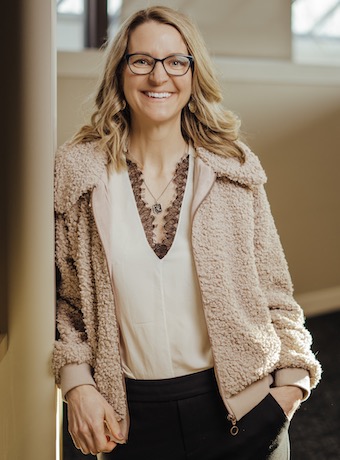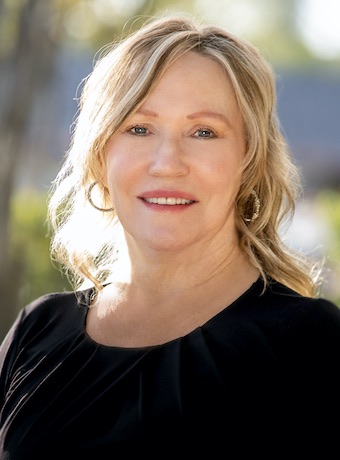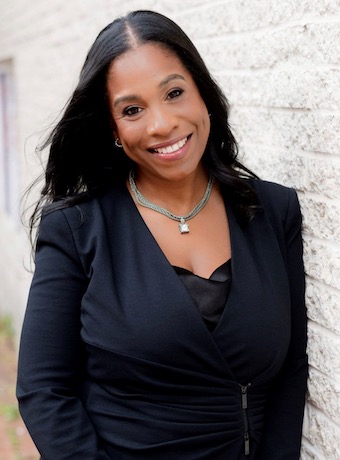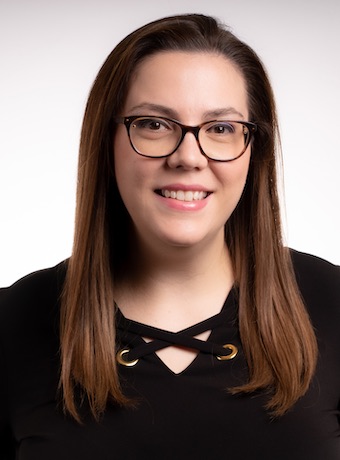10 minutes
Why should women be mindful of surrounding themselves with trusted feedback and positivity in their inner circle?
Research shows that the initial responses when people first talk about good news or share an idea or goal has a big impact on whether they further pursue that activity or idea. Having an inner circle or sounding board of people women can trust to give them thoughtful and encouraging feedback—constructive positivity—can be crucial to their ability to perform with success in the workplace as well as advance in their careers.
Yet many women are surrounded by “frenemies” because “they’re afraid of being seen as not nice,” observes speaker and positive psychology expert Caroline Adams Miller, MAPP, in a LinkedIn video. “It’s really critical that you take a look at your web of support. … We need to be very, very shrewd about the people we choose to have in our lives.”
We talked to four female industry leaders about the need for and the makeup of their support networks. Bosses, professional mentors or personal friends often logically fill this role for many leaders. Women can also intentionally develop their own sounding boards through connections with other co-workers and peers in the office or colleagues found outside the workplace—people without a direct stake in a woman’s advancement who can still provide positive support and respond when needed.
These types of supporters in the life of professional women can form a crucial network and source of positivity during important projects and at key career decision points. When asked for honest feedback, such trusted advisors can offer substantive, constructive criticism that goes well beyond a simple “good job” to helping explain what specifically is good about an idea and how to overcome potential challenges related to an idea.

The Value of a Sounding Board
Many women serving in leadership roles in credit unions have found value in proactively identifying one or more people who can deliver candid feedback, whether for career guidance or when test-driving new ideas before sharing them more widely with their teams.
“You must be intentional about who is in your trusted circle, those that really respect you for the person that you are and are considerate of your goals and aspirations,” says Teshia Davis, VP/people for $5.2 billion SECU, based in Linthicum, Maryland.
A respectful and supportive sounding board doesn’t just mean offering positive responses, but rather constructive and actionable feedback. “Figuring out who those trusted people are is such an important part of the process, because not everybody’s cut out to be that sounding board—not everybody's cut out to tell you what you really need to hear, as opposed to what they think you want to hear,” says CUES member Alison Hoskins, CCE, CEO of $945 million Integris Credit Union, Prince George, British Columbia.
“For me, in particular, it’s a fairly small circle of people that I have built that relationship with, where I can trust that they're not just giving me the easy answer but they’re giving me the real truth,” Hoskins says.
“When women share ideas, how we respond to those ideas is really important, so that the ideas don’t get stuffed down or just abandoned if the initial response to them is either negative or it doesn’t come from a place of exploring the opportunities,” she adds. “If an idea isn’t perfect at first, how do we support each other to challenge and build on thoughts and ideas without just diminishing them?”
CUES member Alyssa Guillory, CCM, VP/marketing for $300 million Unity One Credit Union, Fort Worth, Texas, relies on a small handful of colleagues she trusts to give her honest, “no fluff” feedback. As a young professional in an executive role, she also values the insights some of them can give based on their years of experience.
“As a marketer, I have some pretty wild ideas, and they can offer me different perspectives—both from a work and personal standpoint. They’re also really great teachers, which I think is so important. If my answer or way of thinking is wrong, they don’t just tell me, but instead they teach me the reasons why I’m wrong,” Guillory says. “I really count on them.”
Guillory notes that all the individuals in her inner circle have been people she’s worked with or for over the years; in some cases, she has retained supervisors and colleagues as trusted mentors or sounding boards even after she’s moved on to other organizations. “Sometimes, I just need to get an idea out and … having someone to listen to me in those moments is so important.”

Building a Board
Deedee Myers, Ph.D., CEO of CUESolutions provider DDJ Myers Ltd., Phoenix, an ALM First Company, has taken the sounding board concept to a more formal level by creating her own personal board of directors. Each member fills a specific role on Myers’ board, such as:
- The Challenger—someone who stimulates the potential for bold action;
- The Clarifier—the person who asks questions to help clarify hopes, intentions and future actions; and
- The Confidant—somebody who has known Myers through multiple cycles of her life and witnessed her transformative moments.
The process of creating this type of personal board of directors must be intentional, with each member explicitly invited, says Myers. “You formalize the ask by saying, ‘Hey I’ve got this situation at work. I want to change my career, I want to evolve, and I’m looking to form a personal board of directors. I see that you could be my challenger, and here’s what it means to me,’” she explains.
“When I started my company, we had a protocol where they would check in with me at least once a month,” Myers adds. “I think we need a construct, and then people will buy into our success, and they’ll help us; otherwise, we can flounder. We might think we’re doing the right thing until we hear that constructive feedback from people we trust.”
Myers recommends this board-building exercise to coaching clients at all stages of their careers. “It’s such an advantage to us, as women in the workplace, to draw on multiple or diverse perspectives versus hearing from those who simply tell us, ‘Oh, you’re doing the right thing. Yes, you’re doing it great. Just stay with it,’” she says. “Instead, we need to hear, ‘I see where you're going. This behavior is working, and you might want to shift that behavior, and here's why.’ Diverse perspectives provide a more constructive framework.”
Tips for Delivering Constructive Positivity
Most women have witnessed instances of other women being talked over or shut down during meetings or brainstorming sessions when sharing their thoughts and ideas—perhaps you’ve experienced it yourself. When this sort of thing happens, it can have a chilling effect on a woman’s self-esteem, motivation and ability to lead effectively. Such situations may also leave bystanders wondering how they can help that person.

Female leaders who are most in need of a sounding board might not realize the full benefit of tapping into other perspectives, Davis says. She suggests that when delivering constructive comments to other leaders, it’s important to ask for their permission, since not everyone will want it or be ready for that sort of substantive feedback, even if it’s encouraging.
“Ensure you can be present for them,” says Davis. “That person may be preoccupied in thought and not ready to receive your input. You have to find the right moment so that person can receive it.
“I ask for permission to be candid and give them direct feedback, yet in a thoughtful manner. I really want to come across in an uplifting way. For people that I may not know, I ask, ‘May I speak freely?’ I honestly believe that people appreciate that more, because you’re not putting on that facade, you’re not giving those airs,” she explains.
Davis believes that more women—and people in general—want constructive feedback in the workplace than are currently receiving it today. She echoes Hoskins’ experience: “A lot of times people give feedback based on what they think people want to hear, as opposed to what they may need to hear, but it really can be inspirational to say, ‘I’m not helping you to leave and retreat; I’m helping you to be better and show up as a better you.’”
Of course, not all feedback will be positive. In those cases, the challenge for the feedback-giver is to find a sincere and authentic way to deliver it that still manages to lift up the woman receiving it. “Not everything is easy feedback to deliver,” says Guillory, “so finding a personal connection, then coming from a place of empathy when delivering the feedback, is important. Remember what it’s like to be on the receiving end.”
It’s sometimes difficult to avoid gender stereotyping even while striving to be supportive. Guillory suggests that anyone wishing to be an ally to women in the workplace should be careful not to fall into the trap of pigeonholing women as being “too emotional” to receive meaningful, constructive feedback.
“I dislike the term ‘mansplaining,’ but it helps describe what some women—particularly younger women—have to endure when a person gives them feedback in a patronizing way,” she adds. “Women are not fragile flowers. I personally prefer it when people are straightforward and to the point.”

It’s essential for those giving feedback to be thoughtful and prepared, Hoskins says. “It will be a rare occasion where I’ll deliver constructive feedback without mindfully preparing for the conversation and making sure that I’m really clear in the message that I want to deliver.”
People don’t necessarily need to know everything about the subject, goal or problem to be useful and encouraging in their feedback, either, she adds. “Helping people to find the real resources and the real experts is a good role that we can play for each other in these sorts of trusted circles,” she says.
“I have an informal mentorship relationship with another woman in a different credit union who uses me as a sounding board, because we both understand the industry,” Hoskins says. “We discuss some of the issues that you can’t necessarily discuss with your own team but are hard to contextualize to somebody outside of the industry. We’ve built this great relationship where we connect on a monthly basis. We talk about questions like, ‘How do you handle this?’ or ‘I’m thinking about doing this, and have you seen that, does that work?’ or ‘Is there something that I’m missing?’”
If you’re not already someone’s sounding board, Myers suggests one of the most helpful ways to give constructive positivity is to support women in real time during workplace events like board meetings or group sessions where they are being ignored, dismissed or talked over. In so many of these situations, no one in the room speaks up on their behalf to support them.
“That does happen a lot in board rooms, especially with women who think that they’re just a checkmark on a diversity list—a non-response from the listeners and the bystanders, the witnesses who are not saying anything. So we’re all culpable then,” says Myers.
“What I’m hoping is that other people in the board room or on the team will say is ‘Hey, let’s pause for a minute and give some feedback to Deedee here,’ or ‘Let’s dig in a little bit more.’ If not, and there’s only silence, then I feel like I’m here, yet I’m not adding value. Then the feeling can be one of shame or one of self-doubt, and that’s the opposite of what is needed in an organization.” cues icon
Amy Freed Stalzer, CAE, is a writer and communications consultant based in the Washington, D.C., area.





